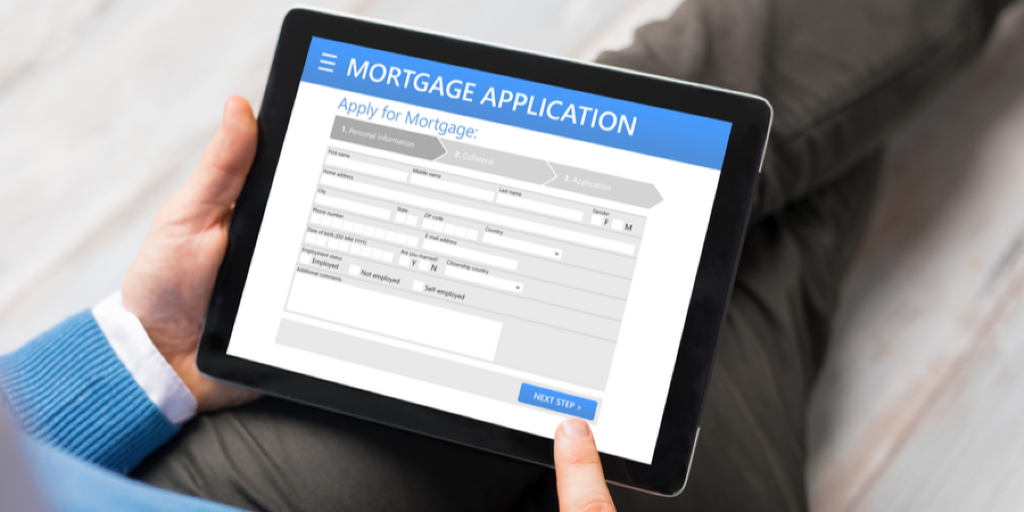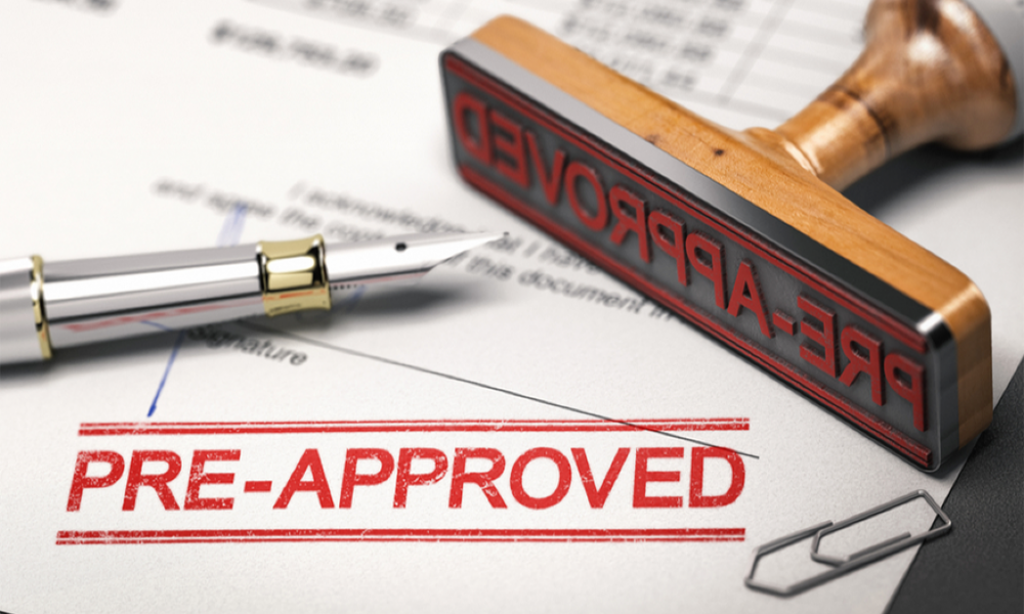Mortgage Pre-Qualification vs. Pre-Approval

- A pre-qualification letter is an assumed number based upon basic information provided to a lender.
- A pre-approval letter is an exact number based upon in-depth information provided to a lender.
- A mortgage pre-approval speeds up the time when closing on a home.
Purchasing a home is a big financial step. Whether you are buying a house by yourself, with your partner, or with a friend, it’s essential to know about the process beforehand so that you can fully prepare for your financial future.
One of the most common words you will hear throughout your house buying process is pre-qualification and pre-approval. These two terms can also apply to an auto loan or when applying for a student loan with a private company.
Pre-Qualification
By definition, pre-qualification is an assumption of an estimated amount of credit that lenders will give based upon financial information provided to them on an application that you have submitted.

Image Credit: Vitalii Vodolazskyi / Shutterstock.com
These estimated assumptions typically come with conditions to move forward to the pre-approval process, which means that under the condition that your credit score is within a specific range. For example, if you make a certain amount annually, only you will be pre-approved.
Recommended Read: FICO Score: How Is My Credit Score Calculated?
Pre-qualification is often used as a marketing tactic to entice more customers to apply for credit products and services. Lenders get your information 1 of 2 ways, either you are an existing customer of the company that solicits their services, or creditors share your information with other credit agencies. These credit agencies will do a "soft pull" on your credit report to determine their target market.
Credit agencies form unique relationships with lenders in exchange for lists of potential borrowers. If you would like to accept the pre-qualification offer, you must contact the lender to proceed to the next step in the application process. Keep in mind that you still have a chance of being denied even though you may have already been pre-qualified. Once your income meets the lender's requirements and your credit score has been obtained, only then will you be pre-approved.
A soft credit inquiry (also known as soft credit checks) is required to get an estimate. Fortunately, a soft credit check does not hurt your credit score. Instead, it gives the lender a general idea of what credit range to put you within when establishing a credit limit.
Pro Tip: You have the option of permanently opting out of receiving pre-qualification offers by calling 888-567-8688. You can also complete the form online at www.optoutprescreen.com. The process takes up to 5 days to process your decision to opt-out.
Pre-Approval
The next step after the prequalification process is getting pre-approved. Unlike pre-qualification, pre-approval gives you an exact number of how much you are approved for and your interest rate.
A pre-approval requires a “hard pull” on your credit report. A hard pull impacts your credit scores with all three major credit bureaus, so before applying, ensure that you know your credit score range. In addition, lenders are looking for a positive payment history and how much debt you may be carrying.

Image Credit: Olivier Le Moal / Shutterstock.com
Obtaining pre-approval allows lenders to see that you are serious about taking on their services. Often than not, lenders require pre-approval letters to move forward with credit card offers or even when making an offer on a home.
Applying For a Mortgage
Pre-qualifying and being pre-approved can sometimes mean the same thing when applying for a mortgage, depending on the lender you use. There is a slight legal difference in the two terms, but they can both be sought to mean the same thing.
So remember to clarify before giving your information to know what you should expect once you apply for a home loan.

Image Credit: fizkes / Shutterstock.com
If you decide to have a real estate agent or realtor during your house buying process, your realtor will prefer that you have a pre-approval letter when you decide to buy a home. The pre-approval letter shows that you are serious about purchasing a home and helps speed up the process when making an offer on a home.
Before getting pre-approved, you should know what range your credit score is within, your debt to income ratio, your gross monthly income, and a general idea of how much you own in assets.
Typically the lender would like for your debt to income ratio to be below 36%, with a credit score of no lower than 580. To calculate your debt to income, simply add up your monthly expenses and divide that number by the total amount you bring home before taxes. The lower the percentage, the less risky you appear to mortgage lenders.
The number provided to you on your pre-approval letter will be your new credit limit. Higher loan amounts result in higher mortgage payments. It is not always ideal to borrow the maximum loan amount. It’s essential to leave yourself financial wiggle room for when life happens.
Benefits of a Pre-Approval Letter
There are many benefits to being pre-approved before shopping for a home which can include:
● Negotiation Power
● Faster Closing Times
● Knowledge of Maximum Price
● Strong Buyer Perks
Negotiation Power
From a seller's standpoint, they are typically more flexible when they see that you come ready to buy. They are more willing to compromise on home improvements and or repairs, knowing things will move more swiftly.
Faster Closing Time
The home buying process, on average, takes up to 60 days. Within that 60 days, a pre-approval for financing is sought out. If you come with a pre-approval already in hand, it cuts down on the time that you need to move into your new home.
Knowledge of Maximum Price
Having a pre-approval also saves you time on looking for homes that are over your price range. For example, you would not want your realtor showing you a $300,000 home if you can only afford a home with a maximum price of $150,000.
Strong Buyer Perks
It is less risky for sellers to deal with a buyer who comes with a preapproval letter than it is for someone who doesn't have one. There is a higher chance of financing falling through if you come to the table empty-handed. Realtors and sellers will not entertain offers before being pre-approved by a lender.
Always verify with your lenders what their version of prequalification and preapproval are.
The home buying process can be challenging for some first-time homebuyers. Share with us an important step (or tip) that all first-time buyers should know.
Main Image Credit: Shutterstock.com